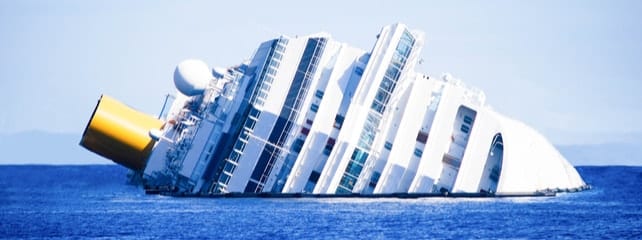
Boating enthusiasts must exercise great caution as they travel lakes and oceans. Operating a boat in a reckless manner or while under the influence of alcohol can have catastrophic and deadly consequences. A leisurely day of rest and relaxation in an inland waterway or on the beach can quickly turn into tragedy.
It would seem that activities on the open sea aren’t monitored as closely as roads and streets, but there are still boundaries while boating and police still take by boat. Boating and drinking are activities that happen quite often along the coasts of Florida, and even if it would seem collisions would be unlikely with the amount of space all boats have, accidents happen more than we would like to see them. Call an Orlando boat accident lawyer for guidance.
Not all boating accidents are caused by powerboats careening across the water at high speeds. Collisions can also be caused by sailboats, fishing boats and personal watercraft (PWC) collisions. On any of those boats, passengers can slip and fall onto the surface of the craft or overboard. Boat manufacturers who put profits over quality and safety could cause accidents due to faulty engines or safety cut-offs.
Personal watercrafts are often operated by those inexperienced and lacking knowledge about the use and potential hazards. Businesses involved in renting PWCs can be held liable even when waivers are signed.
Boating accident cases are complex, requiring thorough investigations and attention to detail. Let us handle the legal “heavy lifting” while you focus on recovering.
Personal injury lawsuits for boating accidents are no different from car accident lawsuits. You must prove that the operator’s negligence caused the accident, which resulted in your injuries. Negligence is described as failing to act with “reasonable care.” It’s up to your injury attorney to prove that your injuries are the direct result of a negligent boat operator before settling. Damages that your injury attorney will seek in your settlement include:
Understanding common causes of boating accidents can help when determining the value of an injury settlement. The most common reasons for boating accidents include:
The U.S. Coast Guard’s accident statistics show that alcohol is the most common factor leading to fatal boating accidents. Oftentimes, it’s the boat operator that causes a boating accident, but you’ll notice that other factors also play a part in causing accidents.
When most people think of boating accidents, a picture of treacherous ocean waters or stormy skies comes to mind. Most accidents, however, happen in the light of day on inland waters with optimal weather. The most severe boating injuries occur from the following accidents:
A challenge that often arises in personal injury settlements for a boating accident is whether there is enough insurance coverage for the cost of damages. Even if your attorney successfully proves to a judge that the boat operator was liable for the accident which resulted in injuries – you may not be able to collect any compensation if the operator doesn’t have boaters’ insurance. This special type of insurance is separate from homeowners’ insurance and auto insurance coverages.
If you’ve been in a boating accident, ask for the boat operator’s insurance information if you’re well enough to do so. If the accident occurred with another vessel on the water, ask for both operators’ boating insurance information. Your injury attorney can advise you on how to file a claim against the owners and drivers of both boats that are involved.
At The Umansky Law Firm, we provide aggressive representation to all clients injured in boating and PWC accidents, regardless of the severity of their injuries. Call or contact our Orlando boat accident lawyers anytime, day or night, for a free consultation.
The Umansky Law Firm Criminal Defense & Injury Attorneys
